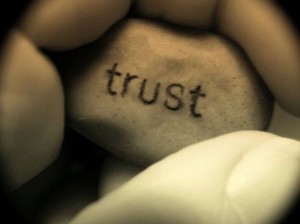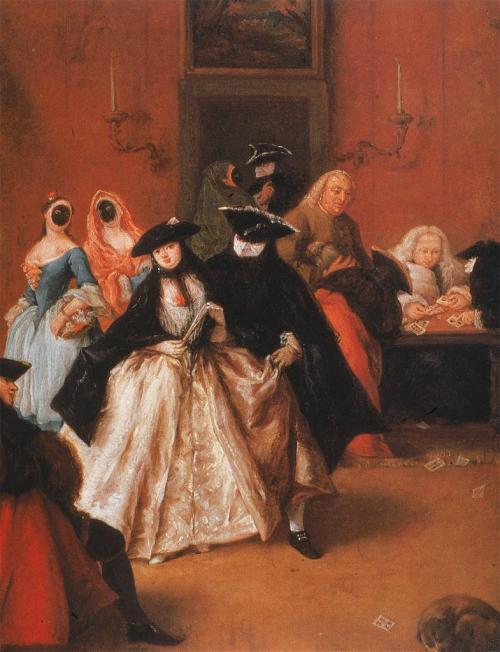In this article I will be looking at this year’s publishing phenomenon, the 50 Shades Trilogy. The books – a sort of BDSM Mills-and-Boon-esque romance, have been a runaway success, making the author, British mother EL James, one of the most successful female authors of all time. The 50 Shades Trilogy has outsold Harry Potter and the Da Vinci Code.
EL James’ success comes at a time when the British ministry of the interior, the Home Office, whose remit extents to policing and criminal justice, is seeking to widen the definition of Domestic Abuse in England to include coercive control, following a series of high profile murders of women in England, in 2011 and 2012. The Criminal Justice system in the United Kingdom is slowly waking up (not fast enough for many abuse survivors, in my opinion) to the fact that the phenomenon of a man exercising coercive control , rather than physical violence, is a greater indicator of risk of a woman being murdered by her intimate partner. It is not, then, without significant irony James’ stupendously successful novels contain numerous instances of the “hero” exercising such coercive control over the heroine.
My beef with the books are not the fact they are terribly repetitive and stomach-churning “love scenes” every three pages or so. I am not calling for a ban because they are “porn” or “filth”, as many on the religious right are. Nor am I making a value judgement per se on those who follow a BDSM lifestyle or who enjoy certain erotic tastes in the bedroom. Yet these books are, in every way, completely immoral.
What is particularly disturbing is that this is being presented for public entertainment and the women reading 50 Shades are effectively being conditioned to view coercive control, one of the most dangerous and insidious forms of relationship abuse, as normal, and even something to aspire to.
Serial Abusers, whether they target children or adults, typically use grooming to create a trust that is later used to keep the Target in the sexual relationship as well as to keep them from seeking help. This is done by paying excessive attention to the Target the beginning – spending time, buying gifts, and this attention can even extend to the Target’s family and friends as a means of masking the actual intent of the actions. 50 Shades of Grey is actually a novel which describes, rather accurately (albeit unintentionally) the process of grooming of a vulnerable Target used by a serial abuser.
Grooming is a term usually used when talking about child sexual abuse, but in my view all abuse involves forms of grooming which in the relationship between an adult Abuser and an adult Target retain many of the same patterns and features.
James’ writing jumps around a bit and its not logically consistent, but let’s look at how the six stages of grooming play out in examples the 50 Shades novels. Critics quickly point to the fact that Ana’s musings read like a teenager’s diary, missing the point that this is actually a device to emphasis Ana’s innocence. Ana’s reaction of embarrassment to a couple kissing openly in an elevator, for example, indicates that Ana maybe an adult chronologically (though not by much); emotionally she is a child. The definitions of the six stages are adapted from this abuse survivors website, which focuses on child abuse, but, as I’ve said, Grooming can affect children and adults alike, and Ana is portrayed very much as a child particularly in the first two books of the Trilogy.
1. Targeting the victim. An abuser will size up their victim, choosing one that has lower self-esteem, and is vulnerable, isolated, and needy. Targets who are isolated geographically or emotionally from their family are particularly vulnerable to Abusers.
In the 50 Shades Christian Grey immediately picks up on Ana’s insecurity and low self-esteem when she stumbles into his office and nervously asks her questions for an interview for a student magazine. The epilogue in the final book of the Trilogy, which describe this encounter from Grey’s point of view, portrays in detail how Grey selects Ana because of her shyness and vulnerability. He knows there are very few people around her who will defend her, and he seeks almost immediately to isolate her from her friends Jose and Kate, being openly hostile towards them both. Early on in their dating relationship he quizzes her for private information regarding her family, discovering that she is the product of a broken home, that her mother lives at the other end of the continent, and that her stepfather, to whom she is closer, lives in a different town.
2. Gaining the victim’s trust. The Abuser gains their Target’s trust by gathering information about the Target, their needs and how to fulfil them, and may extend this behaviour to the Target’s friends and family as a means of masking his actual intent.
In the 50 Shades Trilogy, Christian Grey admits to keeping a dossier on Ana with a lot of personal information. He learns through his snooping that Ana is “quietly ambitious” about her chosen career. When, nervous about his control, she turns down working in his company, he finds out where she works and where her new job is going to be (and stalks her both on-line and in person). At their first date, Ana mentions fleetingly that her stepfather likes fishing. Grey immediately mugs up on fishing, feigning an interest in the sport to gain the trust and appear likeable to Ana’s father, who concludes he is a great guy. Even though his goal is to isolate Ana from Kate and Jose, her two best friends, he initially extends largess to them, by buying Jose’s photographic art and including Kate on expensive outings. In the second book Grey admits to running intrusive background checks on Ana and finds her bank account number and knows that she has very little money and a lot of student debt. He is ideally equipped with information to proceed, from a very early stage in their relationship to the third stage of grooming, namely:
- Fulfilling a need. Once the Abuser has figured out what the Target’s needs are, the Abuser begins to lavish the Target with attention, gifts, praise and affection, extending this behaviour where necessary to friends and family. Grey lavishes Ana with expensive gifts, including a car, and valuable first editions of Tess of the D’Urbervilles and money, where he has this paid directly into her bank account. He also gives her very expensive clothes, even though she is clearly uncomfortable with accepting these gifts. In the first book, he manipulates her stepfather in giving his blessing to Grey presenting Ana with a lavish luxury car as a “graduation present”, and uses her father’s assent to the idea to enforce Grey’s demand that Ana hand over her beloved classic car to Grey to be sold. He does not give her the proceeds of the sale of the car immediately, remaining in control of the money, until Ana demands it from him when she decides at then end of the first book to leave him (typically of a woman in an abusive relationship, she returns to her abuser in the second books). In the additional chapters in the final book, which are written from Grey’s point of view, we see Grey assessing Ana’s poverty when he first meets her and plotting on how to exploit it. Grey uses his wealth, having identified Ana’s economic needs, to gain leverage over her through gifts and patronage, but Ana’s economic life remains strictly controlled by Grey and the purchases primarily serve his needs, not hers. For example, in the second book he buys the company where she has just started working, with the excuse that he wanted to expand his business into publishing. Grey lies blatantly to Ana about true motivations for acquiring the company, has her boss fired, and Ana is given her boss’s job. Ana’s working life as well as her private life quickly come to depend on Grey. Ana quickly becomes dependent on Grey for her self-esteem and professional advancement.
- Isolating the Target. In cases of child grooming the sex offender usesthe status of idol and the special relationship he or she has with the child to create situations in which the child is alone with the predator. Situations can include special trips, babysitting, tutoring, or mentoring. In an abusive relationship between to adults, isolation takes the form of removing the Target from their support networks and comfort zones and making the Abuser the centre of the Target’s universe, establishing an emotional dependency on the Abuser.In 50 Shades, we see a patterns of abuse commonly found in child grooming, which is hardly surprising since Ana is emotionally extremely child-like. Her youth and inexperience are contrasted with the idea that Grey (who is chronologically older than Ana) is also old beyond his years. So we see plenty of “special trips” in helicopters, private jets, and yachts, which Grey makes sure Ana knows are “just for her, because she’s special”. These trips are used to establish trust and also to isolate Ana from her support networks. Grey uses a mentor/tutor role to gain control over Ana, an in the second book Ana remarks that he her sexual mentor, that she will always be “behind”, and that Christian is, and always will be, more knowledgeable about most things except cooking. Ana states how she “blossoms under his praise”, with the reverse also being true: Ana becomes anxious, insecure, and tearful when Grey is displeased with her (which usually happens within a few minutes of him praising her). Ana very quickly ends up living with Grey, and marrying him, within a few weeks of meeting him.Adult patterns of grooming are evident when Grey uses the fact that Ana’s best friend – and voice of reason – is away on vacation to quickly accelerate the grooming process, and by the time her best friend returns, Ana is more or less living full-time with her Abuser and becomes engaged to him. In the first book, Ana goes to visit her mother for a break to think about the relationship. Initially Grey is angry with Ana for going off on her own to visit her family, but consents to her visiting her mother eventually. Grey then follows her (more stalking behaviour) and ends up monopolizing Ana’s time so that she does not get to spend the weekend with her family. Grey is openly hostile to Kate, Ana’s best female friend, and Jose, her best male friend, because he knows that Kate immediately identified him as a potential danger to Ana, and behaves in an extremely threatening manner to Kate when Kate, on return from her holiday, confronts him about his treatment of Ana. He constantly tells Ana how happy he is that is was she, and not her confident, experienced, no-nonsense friend, who came to is office to interview him. I’ll bet!
- Sexualising the relationship. With child grooming, after the emotional attachment and trust of the child has been obtained, the Abuser progressively sexualises the relationship. Desensitization of the child occurs through talking, pornography, and creating situations in which the child and abuser are naked. The child may begin to see their relationship in more sexual, special terms. With adult grooming, this behaviour is subtler and harder to identify. Typically in an abusive relationship, the dating relationship will become sexual, more serious, or all consuming, very quickly, before the Target is ready for such serious commitment.So how does this manifest itself in 50 Shades? The road-map for child grooming is most obvious with respect to the BDSM side of Ana and Grey’s relationship, where the child-like Ana is desensitized firstly through talking about BDSM, then being ordered to research and negotiate a contract on it with her abuser. Within a few weeks Ana is coerced and manipulated into sexual acts of ever increasing depravity and within a few days of becoming sexually active is being subjected to escalating levels of inhuman and degrading treatment. Grey objectifies and sexualises Ana, turning her into a sexual object. The adult grooming is apparent in the acceleration of the relationship. Ana becomes Christian’s official girlfriend / submissive within a few days of knowing him, he manipulates her into moving in with him and marrying him within a few short weeks. On their second date, when Christian takes Ana to see his home in order to convince her to becoming his Submissive, Christian does not give Ana the option of saying no to him, or taking things more slowly, demanding that she surrender her virginity to him immediately so that he can escalate the sexualisation of their relationship. Ana is manipulated into consenting believing Grey’s lies that sleeping with him will be a “remedy”.
- Maintaining control. With child sex abuse, once the sexual abuse has begun, child sex abusers use secrecy and blame to manipulate the child into silence and participation. “This is how we show that we love each other,” “It’s not hurting anyone,” are common things a child groom-er may say to their victim. With adult grooming, a similar pattern is followed. A Target is continually conditioned to accept Abuse because its “for her own good” or “she asked for it” or “made him loose his temper” or “this is just how he expresses his love or affection” and she is punished severely if she talks to an outsider about the relationship or attempts to seek help. In 50 Shades, secrecy is apparent from the start since Grey makes Ana sign a Non-Disclosure Agreement, preventing her from discussing his BDSM predilections with anyone (this would also prevent her from seeking help when trying to exit the relationship). Ana also discovers that Grey photographed his previous Subversives in compromising positions in order to coerce them into silence. Ana is frequently told, and eventually comes to accept, that Grey’s control is for her own good. Grey sees Ana’s free will as an obstacle as a negative thing. Grey tells Ana that “all her worries would go away” and she won’t have to think about whether “an action is right or wrong” if she submits to him. With respect to violence and BDSM during sex, Grey frequently says, and Ana accepts, that “this is how Grey is made”. Grey, from the start, exercises and maintains control over Ana using food. He is constantly forcing Ana to eat, even when she is not hungry. He attempts from the start to control how much she eats and what she eats. Grey’s pathology regarding food is perhaps a textbook indication that he is an Abuser. A further example of the maintainable of control is over Ana’s car. Grey buys her the new car, making her give her old car to him for him to control the sale, but then does not allow Ana to drive her car and constantly criticizes her driving, undermining her confidence when she is behind the wheel, until she pulls up and lets him drive. Ana believes it is her choice to let him drive, but it is obvious Grey has manipulated Ana into relinquishing the control of the vehicle. The same pattern is repeated over and over in other aspects of the couple’s relationship.
Ana worries constantly that she will not be able able to please/appease him, and modifies her own behaviour constantly to keep Grey comfortable. Grey never takes responsibility for his own hurtful, unreasonable, or downright dangerous behaviour; he puts it all down to is abusive childhood. Ana is constantly worried that her behaviour is upsetting Grey, and Grey constantly keeps her off balance with volatile and moody reactions. Ana quickly becomes dependent on Grey, modifying her behaviour to please him – an impossible task, since he moves the goal posts continually, keeping her off-balance. Grey manipulates Ana into believing that she “likes it rough”, and that she is in control, when in fact she has no control in the relationship. We know this is also a temporary concession, as the abuse clearly follows a line of escalation which will mean Ana will eventually not be able to say no to anything Grey wants to do. Grey allows Ana (temporarily) to say no to certain sexual acts in order to maintain the illusion that Ana is in control and gain her trust. In reality, this concession means that Grey’s rapid acquisition of control over Ana’s entire life (not just her sex life) goes unnoticed or unrecognized for what it is.
Grey exercises an appalling level of control over his former Submissive, another victim, with the assistance of his rather sinister psychiatrist friend, Dr Flynn (who also encourages Ana to marry Grey while admitting his life would be “penurious” without Grey’s patronage). Leila Wilson has been clearly damaged by her relationship with Grey, (again, Grey shifts responsibility for her trauma onto other men in her life) and rather than call the police when she begins to stalk Ana (since this would mean exposure for Grey) he uses his influence to have her forcibly sectioned, “for her own good” and then pays for her hospitalization and art therapy in exchange for her silence and promise to stay on the other side of the continent. In Leila’s story we get a grim glimpse into Ana’s future. Grey insists on not having a pre-nuptual agreement to protect his wealth, and Ana takes this to mean the ultimate level of trust. We know better. She’ll be in a straightjacket and stated under Dr Flynn’s (and therefore Grey’s) control before she can get to a divorce lawyer, or the woman’s shelter.
What, then, are we to make of all this? As a society, as women, are we being conditioned to accept coercive control as normative in our relationships? If yes, then we are at risk, and most importantly, our children are risk as well. If we do not notice it happening to us, will we notice it happening to our daughters?
We do not pay enough attention to the fact that our society’s toleration grooming activities of serial abusers towards adult women also points to the tacit acceptance of the abuse an exploitation of children. These are the same patterns of coercive control which are clearly evident in EL James’ novels, which are presented to the public for entertainment and titillation. I think we need a serious discussion on the kind of entertainment we are consuming and what ideas we are being fed. My concern is that the mainstream acceptance and even glorification of James’ portrayal of grooming will put generations of women and children at risk by normalizing and glorifying grooming and coercive control.
Given this, I cannot help but come to the conclusion that the 50 Shades trilogy rank as some of the most evil and dangerous books ever written. I do not say that the 50 Shades books are evil because I am a moral reactionary. I am not channelling Mary Whitehouse. These are novels which hold up relationship abuse and coercive control as a romantic ideal. Just clicking on the Amazon reviews one sees women gushing about how nice it is to read about a “real man” and how they wished their own intimate lives mirrored that of Christian and Ana’s. Well, Christian Grey is a real man, his personality is the archetype of the Abuser. Just ask any relationship or child abuse survivor, and she’ll tell you how terrifyingly real Christian Grey is. These books are dangerous precisely because of their commercial success and mainstream appeal. It is not the ridiculous graphic sex scenes, idiotic dialogue, and poor writing which make these books inherently immoral, but the fact that their mainstream acceptance has, in the words of English psychotherapist Sean Orford, “set the cause of women back a century”.
Unfortunately, 50 Shades is only going to be the first in storm of diabolical books focusing on the erotic conditioning and control of women as every publisher of women’s fiction in the Western Hemisphere jumps on the BDSM/erotica bandwagon.
And by their very nature; they shall be Legion.








